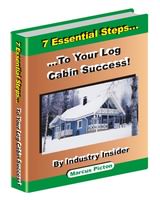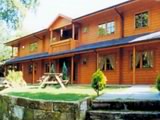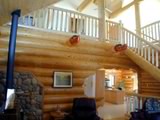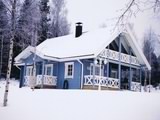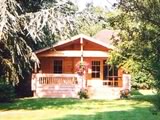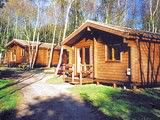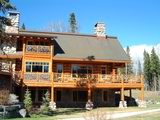“There are many Log Types out there! You need to select the best and most appropriate for Your needs.
 Selecting log types is no easy task for a first time buyer! Once you start looking you will realise there are a lot of options to pick from. Time researching this is time well spent however, as the logs are an integral part of your whole structure and therefore must be good. Choose your log types well and you will have a log cabin to cherish for the rest of your life (with proper maintenance). Choose poor quality logs however and it may be sooner than you think, that you are paying for the consequences of your actions!
Selecting log types is no easy task for a first time buyer! Once you start looking you will realise there are a lot of options to pick from. Time researching this is time well spent however, as the logs are an integral part of your whole structure and therefore must be good. Choose your log types well and you will have a log cabin to cherish for the rest of your life (with proper maintenance). Choose poor quality logs however and it may be sooner than you think, that you are paying for the consequences of your actions!
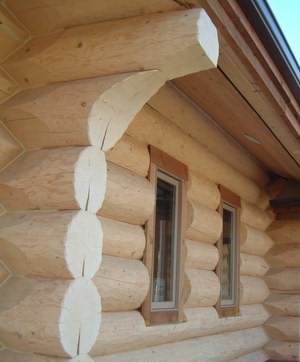
So let’s make sure know you everything about log types:

 Machined or whole log?
Machined or whole log?
Well there is a big difference between the North America hand crafted solid logs, made from a complete section of a tree, to the planed or machined log types which are cut and then profile, out of a larger piece of timber. For a start the solid whole log approach tends to result in much larger logs and the fact they are effectively a section of a tree with the bark removed, means the shape is much less uniform. The machined style of logs are very precisely profiled and therefore easier to put together. The hand crafter solid logs, have to be carefully selected and scribed together at the factory, before being taking down and shipped to site. Discover more about the 2 main log types which are available.
 Profiles
Profiles
In this section we really looked at what profiles are available for the machined or profiled logs. Sometimes also referred to as planed logs, the profiles tend to fall into 3 main categories:
1) Round logs
2) Square logs (although may be rectangular in shape)
3) D-logs (which are flat one side and curved on the other)
Now there are many variations on the 3 main themes mentioned. For one thing the thickness across the log varies enormously. We also need to look at how to logs fit together, as this is important in keeping the elements out. We take a look in more detail at log profiles.
 Thickness
Thickness
Log cabins tend to conjure up the image of a very sturdy timber building made from thick logs. While there are still plenty of nice thick logs available the diversity of the market and products now, has resulted in a much wider range of log thickness. In all honesty there are now products which are now being marketed as “log cabins” which are little more than glorified garden sheds! Whilst many smaller garden types of cabins has meant it has been appropriate to use thinner logs, there comes a point when you must decide what is suitable and what really is too thin. Find out why log thickness is very important and what suitable for your log cabin application.
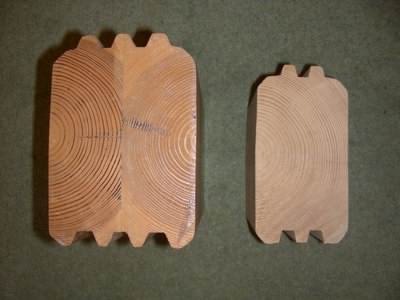
 Laminated logs
Laminated logs
There are many people who have never heard of laminated log, but they definitely are worth considering. Of all the log types which fall under the profiled category, these really are the best type of logs you can buy. They tend to be found in larger log cabins at the quality end of the market, but are still worth considering for smaller ones too. The superior strength and resistance to warping or cracking, really sets these apart from most standard logs. We reveal how these logs are made and why the offer so much.
 Log joints
Log joints
Log joints are important to the structure and longevity of your log cabin, but is not something very many people know about. For those of us who have been working around log cabins for years, different log joints soon become apparent in cabins which have been around for a little while. A proper log joint, such as a well constructed finger joint, will stand the test of time. Poorly secured butt joints for example, could result in your logs pulling apart over time, to leave an unsightly gap, and (even more worryingly) a real weak spot in your log structure. Not only can this let the weather in, in some cases it has been bad enough to let birds in too! Good log joints are definitely something to be sort after, so take a little time to investigate log joints further.
 Timber Frame
Timber Frame
Now quite a lot of larger log cabins are not made entirely from logs, but also utilize timber frame as well. There is actually quite a good reason for this and it is to do with avoiding having log walls which settle, next to structural members which don’t. Sometimes log profile cladding (or siding) is used, so that in many cases an untrained eye wouldn’t even realize that it wasn’t logs. It other cases a contrasting look is created by using a different type of boarding altogether. We explore where timber frame is likely to be used and why.
Click here to come from log types to the homepage





 Selecting log types is no easy task for a first time buyer! Once you start looking you will realise there are a lot of options to pick from. Time researching this is time well spent however, as the logs are an integral part of your whole structure and therefore must be good. Choose your log types well and you will have a log cabin to cherish for the rest of your life (with proper maintenance). Choose poor quality logs however and it may be sooner than you think, that you are paying for the consequences of your actions!
Selecting log types is no easy task for a first time buyer! Once you start looking you will realise there are a lot of options to pick from. Time researching this is time well spent however, as the logs are an integral part of your whole structure and therefore must be good. Choose your log types well and you will have a log cabin to cherish for the rest of your life (with proper maintenance). Choose poor quality logs however and it may be sooner than you think, that you are paying for the consequences of your actions!



